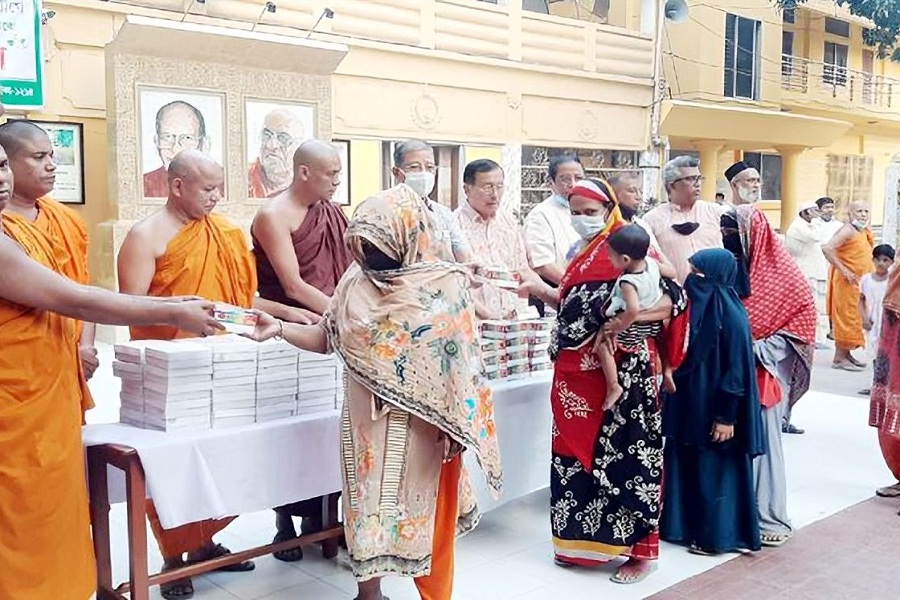Annual Iftar distribution during Ramadan by Basabo Buddhist Temple

Published :
Updated :

The holy month of Ramadan, a time of contemplation and fasting for Muslims worldwide, is deeply cultural and religiously significant. As devoted Muslims focus on self-purification and seek blessings from the Almighty, the communal spirit of Ramadan shines brightly in Bangladesh.
Basabo Buddhist Temple in Dhaka has been promoting interfaith cooperation by distributing iftar (evening meal to break the fast) for the whole of Ramadan every year for individuals of all backgrounds.
Led by the Bangladesh Buddhist Culture Promotion Association, the temple's initiative to distribute iftar transcends religious boundaries, welcoming everyone regardless of socio-economic status. Since its start in 2008 by the late Shuddhananda Mahathir, the iftar distribution has continued as a symbol of unity and compassion. Despite Mahathir's passing in 2020, his legacy lives on as his successors carry forward this noble tradition.
Prof. Dr Suman Kanti Barua, Joint Secretary General of the Bangladesh Buddhist Council, emphasised the organisation's dedication to serving humanity and upholding Buddhist teachings. Iftar is served to around 150 people each day, with plans to expand the initiative further. The menu includes traditional items like chola, muri, beguni, alur chop, dates, and jilapi, ensuring a fulfilling meal for those in need.
The financing of this altruistic initiative has evolved over the years. Initially supported by personal funds and contributions from a few individuals, the Iftar program now relies solely on the temple's resources. Despite financial constraints, the organisers remain dedicated to serving the community.
The unique aspect of this initiative is its inclusive nature, drawing participants from diverse backgrounds. Muslims, Buddhists, and people of other faiths gather at the Basabo Buddhist Temple to participate in iftar, representing the spirit of coexistence and mutual respect.
Many struggling or homeless people have found solace in the temple's generosity, attesting to the profound impact of this interfaith gesture.
Debapriya Barua, organising secretary of the Bangladesh Buddhist Culture Promotion Association, highlighted the program's growth over the years, with the number of beneficiaries surpassing 500 at times.
Despite interruptions due to the COVID-19 pandemic, the iftar distribution has resumed, reaffirming the temple's commitment to fostering communal harmony.
As the day ends and people finish fasting, the Basabo Buddhist Temple symbolises hope and togetherness, showing kindness and welcoming everyone. In a country where different religions are respected, efforts like this show how people can come together despite their differences.
contact.iftekhar.tne@gmail.com


 For all latest news, follow The Financial Express Google News channel.
For all latest news, follow The Financial Express Google News channel.